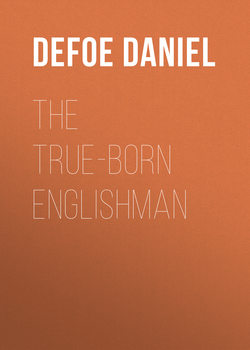Читать книгу The True-Born Englishman - Даниэль Дефо, Данієль Дефо, Defoe Daniel - Страница 13
XII
ROBINSON MAKES A HUNTING BAG
ОглавлениеSeveral days passed with Robinson's hat-making and his calendar-making and his watching the sea. Every day his corn and bananas became more distasteful to him. And he planned a longer journey about the island to see if something new to eat could be found.
But he considered that if he went a distance from his cave and found something it would really be of little use to him. "I could eat my fill," he said, "but that is all. And by the time I get back to my cave I will again be hungry. I must find something in which I can gather and carry food." He found nothing.
"The people in New York," he said, "have baskets, or pockets, or bags made of coarse cloth. Of them all, I could most easily make the net, perhaps, of vines. But the little things would fall out of the net. I will see whether I can make a net of small meshes."
But he soon saw that the vines did not give a smooth surface. He thought for a long while. In his garden at home his father had sometimes bound up the young trees with the soft inner bark of others. He wondered if he could use this. He stripped away the outer bark from the tree, which before had yielded him a fibre for his hat, and pulled off the long, smooth pieces of the inner bark. He twisted them together. Then he thought how he could weave the strands together. He looked at his shirt. A piece was torn off and unravelled. He could see the threads go up and down. He saw that some threads go from left to right (woof), others lengthwise (the warp).
From his study of the woven cloth, Robinson saw he must have a firmer thread than the strips of bark gave alone. He separated his bark into long, thin strips. These he twisted into strands or yarn by rolling between his hands, or on a smooth surface. As he twisted it he wound it on a stick. It was slow, hard work. Of all his work, the making of yarn or thread gave him the most trouble. He learned to twist it by knotting the thread around the spindle or bobbin on which he wound it and twirling this in the air. He remembered sadly the old spinning wheel we had seen at his grandmother's house.
His next care was something to hold the threads while he wove them in and out. He had never seen a loom.
After long study Robinson set two posts in the ground and these he bound with seventy-two strands horizontally under each other. Then he tied in the top at the left another thread and wove it in and out through the seventy-two threads. So he tied seventy-two vertical strands and wove them in and out. Thus he had a net three times as long as his foot and as wide as long. He tied the four corners together. He made a woven handle for it and put it on his shoulder like a sack, saying gleefully, "This shall be my hunting bag."
